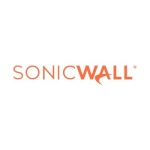What is our primary use case?
I'm a Cybersecurity Designer working for a financial services company in London, England with about 4,500 employees. We've been using Cisco Secure Firewall for about a decade now.
Currently, our deployment is entirely on-premise. We do use a hybrid cloud, although we don't have any appliances in the cloud just yet, that is something that we're looking to do over the next five years.
The primary use case is to provide the ability to silo components of our internal network. In the nature of our business, that means that we have secure enclaves within the network and we use Cisco Secure Firewall to protect those from other aspects of the network and to control access into those parts of the network.
How has it helped my organization?
The greatest benefit that this has provided to our organization is that we've been able to adjust the time that it takes to implement firewall changes. It's gone from a week to less than half a day to implement a change, which means that our DevOps team can be much more agile, and there is much less overhead on the firewall team.
I would say that the Cisco firewall has helped us to improve cyber resilience, particularly with node clustering. We're now much more confident that a firewall going offline or being subject to an attack won't impact a larger amount of the network anymore, it will be isolated to one particular element of the network.
We use Cisco Talos to a limited extent. We are keen to explore ways that we could use more of the services that they offer. At the moment, the services that we do consume are mostly signatures for our Firepower systems, and that's proven invaluable.
It sometimes gives us a heads-up of attacks that we might not have considered and would have written our own use cases for. But also the virtual patching function has been very helpful. When we look at Log4j, for example, it was very difficult to patch systems quickly, whereas having that intelligence built into our IDS and IPS meant that we could be confident that systems weren't being targeted.
What is most valuable?
I would say the most valuable aspect of Cisco Secure Firewall is how scalable the solution is. If we need to spin up a new environment, we can very easily and quickly scale the number of firewall instances that are available for that environment. Using clustering, we just add a few nodes and away we go.
In terms of time-saving or cost of ownership, the types of information that we can get out of the Cisco Secure Firewall suite of products means that our security responders and our security operations center are able to detect threats much faster and are able to respond to them in a much more comprehensive and speedy manner.
In terms of application visibility, it's very good. There is still room for improvement, and we tend to complement the Cisco Secure Firewall with another tool link to help us do some application discovery. That said, with Firepower, we are able to do the introductory part of the discovery part natively.
In terms of detecting and remediating threats, I would say on the whole, it is excellent. When we made the decision to go with the Cisco Secure Firewall compared to some other vendors, the integration with other third-party tools, and vulnerability management, for example, was a real benefit. It meant that we could have a single view of where those three threats were coming from and what type of threats would be realized on our network.
In recent years through the integration of Firepower threat defense to manage some of the firewalls. We were able to do away with some of our existing firewall management suite. We do still need to use some third-party tools, but that list is decreasing over time.
What needs improvement?
In terms of ways that the firewall could be improved, third-party integration is already reasonable. We were able to integrate with our vulnerability management software, for example.
However, I would say that when we're looking at full-stack visibility, it can be difficult to get the right information out of Firepower. For example, you may need to get a subset of it into your single pane of glass system and then refer back to Firepower, which can add time for an analyst to look at a threat or resolve a security incident. It would be nice if that integration was a little bit tighter.
What do I think about the stability of the solution?
The stability of Cisco Secure Firewall was one of the primary reasons that we looked to Cisco when we were replacing our existing firewall estate. I would rate it very highly. We have not had any significant problems with outages. The systems are stable and very good.
What do I think about the scalability of the solution?
The scalability of the firewall is one of the main reasons why we looked to Cisco. The ability to add nodes and remove nodes from clusters has been hugely important, particularly in some of our more dynamic environments where we may need to speed up a few hundred machines just for a few days to test something and then tear it all back down again.
Within our data centers, we have around 6,000 endpoints, and then our user estate is around 4,500 endpoints and all of that connectivity is controlled by Cisco Secure Firewall.
How are customer service and support?
Tech support has been very good. There are occasions where it would be nice to be able to have a consistent engineer applied to our tickets, but on the whole, the service has been very good. We haven't had any real problems with the service. I would rate them an eight out of ten.
The areas that could be improved would be if we could have dedicated support, that would bring them up from an eight.
How would you rate customer service and support?
Which solution did I use previously and why did I switch?
Prior to using the Cisco Secure Firewall, we were using another vendor. The Secure Firewall was a big change for us. The legacy firewalls were very old and not particularly usable. We do still use another vendor's products as well. We believe in in-depth defense.
Our perimeter firewall controls are a different vendor, and then our internal networks are the Cisco Secure Firewall.
Comparing Cisco Secure Firewall to some other vendors, I would say that because we use a lot of other Cisco technologies, the integration piece is very good. We can get end-to-end visibility in terms of security. In terms of the cons, it can be quite difficult to manage firewall changes using the Cisco standard tools. So we do rely on third-party tools to manage that process for us.
How was the initial setup?
The firewall platform itself was not at all difficult to deploy in our environment. I would say that we do have a very complex set of requirements. So migrating the policy from our existing firewall estate to the new estate was quite difficult. The third parties helped us to achieve that.
What was our ROI?
We've seen a good return on investment. The primary return that we have seen is fewer outages due to firewall issues, and also the time to detect and respond to security incidents has come down massively. That's been hugely useful to us.
What other advice do I have?
On a scale of one to ten, I would say Cisco Secure Firewall rates very highly. I'd give it an eight. There are still some places to improve.
If we look at what some of the other vendors are doing, like Fortinet, for example, there are some next-gen features that it would be interesting to see introduced into the product suite. That said, there are other capabilities that other vendors do not have such as the Firepower IPS systems, which are very useful to us. On the whole, Cisco Secure Firewall is a great fit for us.
If you were considering Cisco Secure Firewall, I would say your main considerations should be the size of your environment and how frequently it changes. If you're quite a dynamic environment that changes very frequently, then Cisco Secure Firewall is good, but you might want to consider complimenting it with some third-party tools to automate the policy distribution.
Your other consideration should be around clustering and adding nodes quickly. If you have a dynamic environment, then it is quite hard to find a better product that can scale as quickly as the Cisco firewalls.
Disclosure: My company does not have a business relationship with this vendor other than being a customer.















